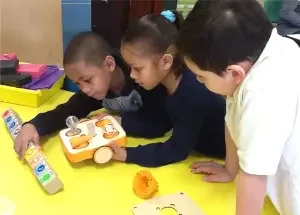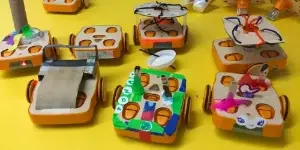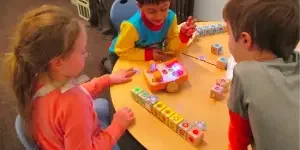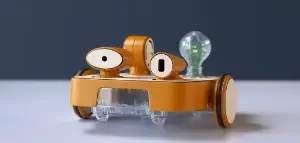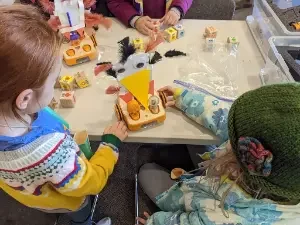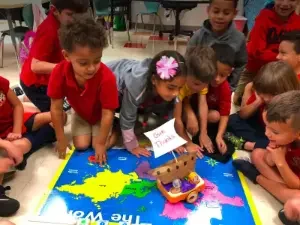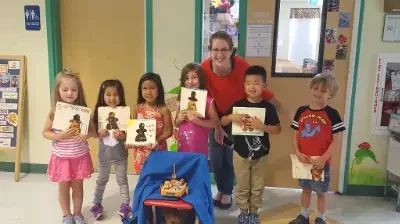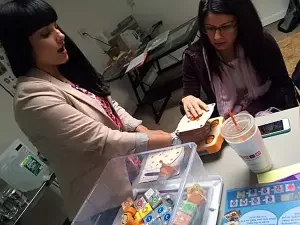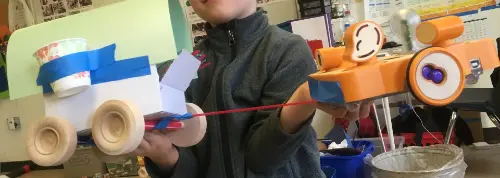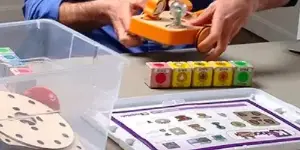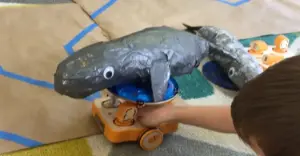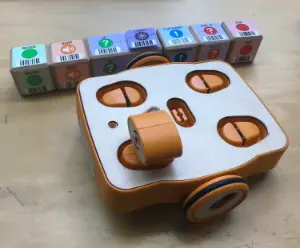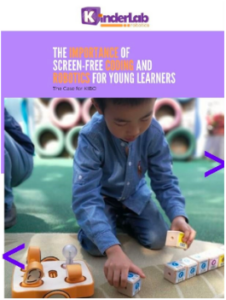Tufts Daily: Growing Up with Technology – Skip the iPads and Bring on the Robots
The KIBO robot is included in this article which describes how hands-on technology also has a place in the classroom vs. only screen-based solutions. The research behind KIBO started with Dr. Marina Bers and her work at Tufts University’s Eliot-Pearson Department of Child Study and Human Development.
The article reads in part:
“Introducing technology to children early on in their lives can help them get a jumpstart on understanding digitalization as our world becomes increasingly dependent on it. The key is to make technology an active learning tool rather than static screens used to occupy children that can perpetuate harmful stereotypes. At the Eliot-Pearson Department of Child Study and Human Development, educators and researchers are working to expose children to technology in a way that is hands-on and engaging.
At the Tufts Eliot-Pearson Children’s School, assistant teacher Abby Lee sees her classroom as a rare opportunity for kids to get a break from technology. She works in the Rainbow Room, serving students between the ages of 2–3. Lee spoke about why the school avoids using technology in the classroom so kids can focus on building connections interpersonally and with nature.
“[The children] mention [how they would] watch videos on [their] mom’s iPad or … see [programs] on TV and whatnot. But we try with the younger kids to have them more connected to the natural world, so we have a lot more time outside,” Lee said. “There [are] no screens just so they don’t become vacant stares.”
Olivia Hobert, an enrichment teacher at Eliot-Pearson, spoke to similar experiences hearing from students about their use of technology at home.
“I think it is really nice for kids to have a break from screens because when they go home, that’s kind of all they do,” Hobert said.
Still, Hobert has found ways to utilize technology while teaching. She fosters her students’ connection to technology through KIBO, a screen-free robot. KIBO was developed by former Tufts Professor Marina Bers,and is designed for children ages between the ages of 4–7. Children can tell KIBO to perform different actions by sequencing an order of wooden blocks that KIBO can then scan.
Unlike just staring at an iPad or TV, KIBO is an interactive medium that teaches young students engineering basics. Hobert discussed the advantages of using KIBO.
“I think some of the drawbacks with screen technology are just [that] it is kind of mind-numbing,” Hobert said. “With KIBO, [the students] have to physically move the robot and move around the coding block so it gets not just their mind engaged but their body [as well].”
“I think it is really important to teach kids to use technology in a way that is not just to play games or just something they do at home as a way to pass time,” Hobert said. “It can also be used to teach them things like coding and engineering.”
Conclusions on technology’s impact on children do not have clear-cut answers. It is true that screen time can have adverse effects on children’s development and that media can perpetuate harmful stereotypes. At the same time, technology can be a learning tool to expand students’ minds. When done well, technology can introduce them to different cultures and worldviews.”
Read the full article!

